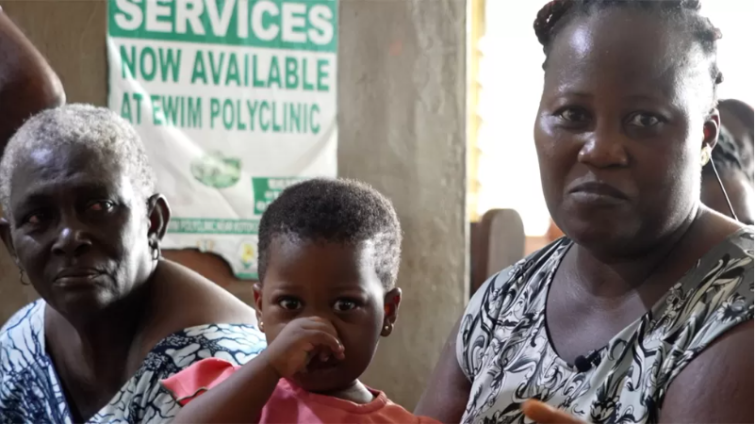
Audio By Carbonatix
Pharmacist, Kwame Sarpong Asiedu, has stated that going forward Ghana needs to chart a path that aligns the country’s democratic principles with the pursuit of better health outcomes for all citizens.
Speaking at a lecture delivered at the British Council Hall on the theme "Down Memory Lane: From 1993 to the Present," where the focus was on Ghana's democracy and its consequential impact on public health, he said Ghana’s underwhelming health sector performance in comparison with countries with similar GDPs has illuminated the need for a more collaborative and comprehensive approach to leveraging the country’s democratic system to yield dividends in health.
According to him, the current political practice of winner-takes-all, where political parties fail to include intellectuals and seasoned practitioners in political appointments instead opting for their party apparatchiks must be eschewed.
“A look at our Presidential election results since 1993 points to no political party ever winning over 60% of the popular vote cast. A critical analysis will show that each of the two dominant parties who have had an opportunity to govern have between 44% and 46% of voters as core following. They only win elections when a majority of the remaining 10% opt to side with them.
“However, in practice post-elections, the winning candidate looks inwards selecting voices from within its circles whilst ignoring any inputs. The losing party waits its turn and jettisons most of the activities the previous government initiated.
“The marginal 10% who are the kingmakers go back to sit on the fence whilst observing the winning party govern. Only to become disgruntled when the health dividends do not materialise. Did the framers of our Constitution promise us improved health dividends or a comical display of musical chairs?” he quizzed.
Kwame Asiedu said it is absurd that parties consistently ignore the intellectual contribution of over 50% of the country's population on a partisan basis and expect that the country’s health inputs will yield transformational outcomes.
“How we can believe that the supposed men capable of turning our health fortunes reside in approximately 45% of our voting population defies me. Perhaps, the former President was right, we have short memories. We have become averse to obvious statistics that stare us in the face,” he said.
He stressed that for the country to achieve a robust healthcare sector and even more admirable health outcomes, political leaders ought to employ a multi-faceted approach that transcends mere rhetoric and short-term gains.
“Instead, it necessitates the establishment of robust processes and frameworks that promote inclusivity, cooperation, and the wise allocation of resources,” he said.
Latest Stories
-
Number of jobs advertised decreased by 4% to 2,614 in 2025 – BoG
28 minutes -
Passenger arrivals at airport, land borders declined in 2025 – BoG
37 minutes -
Total revenue and grant misses target by 6.7% to GH¢187bn in 2025
37 minutes -
Africa’s top editors converge in Nairobi to tackle media’s toughest challenges
2 hours -
Specialised courts, afternoon sittings to tackle case delays- Judicial Secretary
2 hours -
Specialised high court division to be staffed with trained Judges from court of appeal — Judicial Secretary
3 hours -
Special courts will deliver faster, fairer justice — Judicial Secretary
3 hours -
A decade of dance and a bold 10K dream as Vivies Academy marks 10 years
4 hours -
GCB’s Linus Kumi: Partnership with Ghana Sports Fund focused on building enduring systems
4 hours -
Sports is preventive healthcare and a wealth engine for Ghana – Dr David Kofi Wuaku
4 hours -
Ghana Sports Fund Deputy Administrator applauds GCB’s practical training for staff
4 hours -
Ghana Sports Fund strengthens institutional framework with GCB Bank strategic partnership
5 hours -
UBIDS to Complete Abandoned Projects Following GETFund Financial Clearance – Vice Chancellor
5 hours -
Nii Moi Thompson questions Anokye Frimpong’s ‘distorted history’ narratives
6 hours -
Anthony O’Neal set to receive Ghanaian citizenship, prepares to launch ‘Class on the Bus’ Initiative
6 hours

